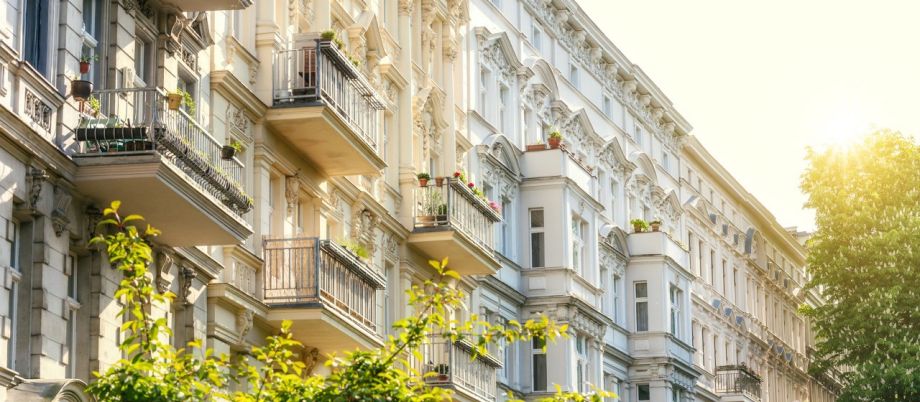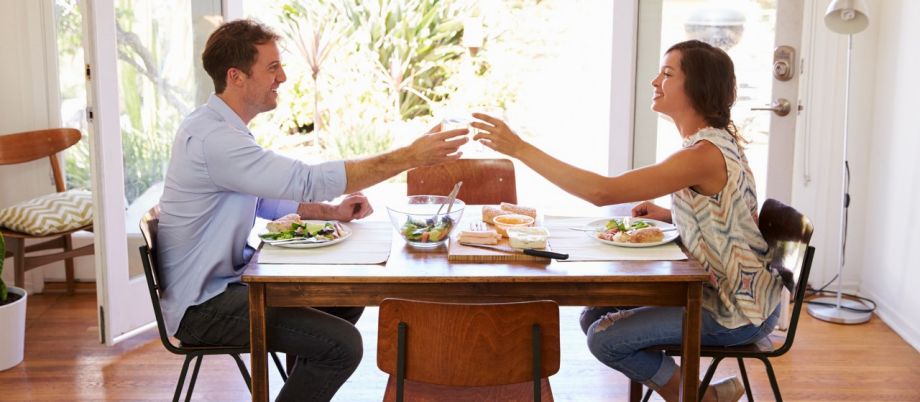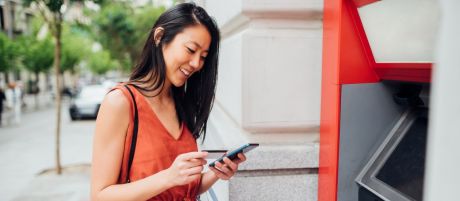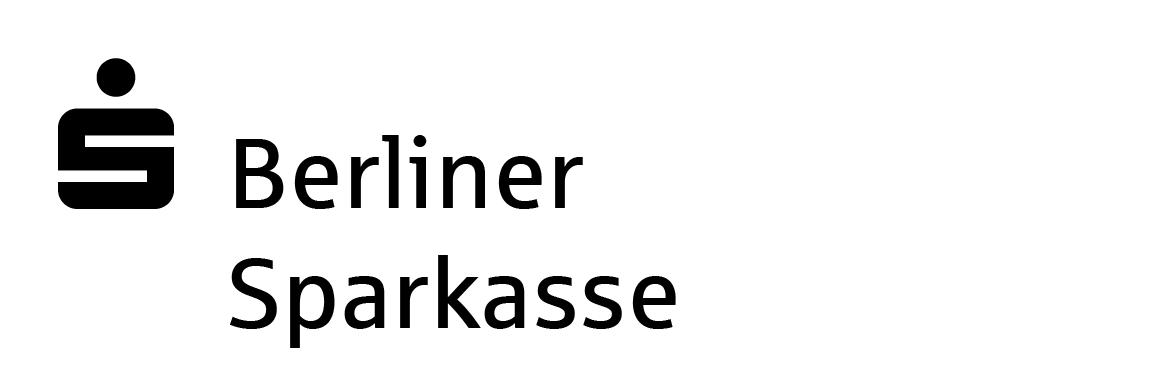
Courage and a little perseverance: Finding a home in Berlin
If you are an expat looking for a flat in Berlin, you’ll need stamina. But with the help of our tips and a bit of luck, you can probably soon move into your new flat and your Berlin adventure can really start!
Housing shortage in the capital
If you are looking for a flat in Berlin, you should arrive with perseverance and composure from the very beginning. The fact is, there are applicants upon applicants and simply too little housing space. So you may find yourself shuffling through a one-room flat along with 50 other applicants, and the base rent may leave you speechless. But don’t despair – after all, finding a flat in Berlin is still easier than in Paris or London!
What does a rental flat cost in Berlin?
The overall cost of a flat is called Warmmiete in German. It includes the rent, service charges and bills (heating and electricity). When central heating is used throughout the building, heating is included in the service charges. In addition, in Germany you have to pay a TV and radio fee, called GEZ, for the public broadcasters. This amounts to €17.50 per household per month. As soon as you have registered your residence, you will be contacted about this by post.
 |
Tip: Keep in mind that you have to arrange an electricity and gas contract yourself with the provider of your choice! |
When you move into a new flat, the landlord usually requires a deposit. This is an amount that covers the landlord in case you leave damage or defects in the flat when you move out. The deposit is usually up to three months’ rent. It is generally deposited in an escrow account or similar and returned when you move out of the flat, provided you hand the property back without any defects.
If you want to know if your rent is reasonable for the area you want to live in, you can check the Mietspiegel database at or use this tool to find out approximately what a flat should cost where you want to live.
How to find a good flat in Berlin
Once you have a realistic understanding of the housing market in Berlin, you can start searching for a flat and make your first viewing appointments. These are the most popular websites offering flats in Berlin:
Real estate portals
Immobilienscout24, Immonet and Immowelt are the best-known portals for flat hunting in Germany. If you place a search request online with each of the three portals, you will always get updates on flat listings.
The main focus of this portal is on shared flats.
This portal is particularly suitable for expats. Many listings are in English and you can often find temporary furnished apartments. There are also many offers for flat swaps. For example, you can swap your flat in New York with the flat of someone from Berlin.
This portal only offers flats from private landlords for rent (not for sale).
Here you can find flat offers as well as an overview of local rents and property prices.
This portal offers a particularly precise search in addition to the usual filter functions: basics (e.g. suitable as a shared flat), furnishing, features (e.g. loft, unfinished attic, maisonette, etc.)
 |
Tip: The housing market in Berlin is highly competitive. You need to respond to offers quickly. It’s best to have your up-to-date application documents with you when going to a viewing, either digitally as a scan on your smartphone or printed. |

Getting started with your bank account
Sending and saving money has never been easier. Keep your money safe with online banking and the Sparkasse app. Enjoy excellent conditions, a wide variety of services and even expert advice at your Berliner Sparkasse.

Property management companies, housing associations and accommodation agencies
It is also worth getting in touch with housing associations, property management companies and accommodation agencies directly. These are the best-known Berlin addresses:
- In Berlin Wohnen
- Fortuna
- GESOBAU
- Gewobag
- HOWOGE
- Housing cooperatives
- Deutsche Wohnen
- DPF
- Stadt und Land
Networks and employers
Often flats are transferred directly from one tenant to the subsequent tenant. It’s helpful if you have lots of social contacts and leverage networks. Also, employers sometimes provide housing for their employees. It’s worth asking. Many tenants are looking for subtenants for a period of time. A furnished sublet can make your start in the capital easier. Until the main tenant wants to move back into the flat, you have time to look for long-term accommodation.
Here you can find flat offers in English:
- Expats in Berlin
- Expats in Berlin
- Rent a flat in Berlin
- Roommates / apartments for rent in Berlin
- BERLIN APARTMENTS
- Berlin Apartments – Rent – Share & Sell
- Berlin flats LONG TERM ONLY
- Berlin LONG TERM rooms/flats
- Berlin Apartments & Rooms for Rent
- Flats in Berlin
Here you can find flat offers in German:
Estate agents and full-service agencies
If you are willing to spend some money, you can also contact an estate agent or employ the services of a full-service agency. Similar to Airbnb or hotels, you can check right into the flat, and usually services like cleaning the premises are included. Most of the apartments you find there are quite stylish. The hipper the quarter and the flat amenities, the higher the price. In Berlin-Mitte, a room can easily cost €1,500 a month.
 |
Tip: Starting with a furnished flat in Berlin has a decisive advantage, especially when it comes to official formalities. Private landlords and municipal housing associations usually require bank information and proof of salary, which often cannot be provided because, for example, you can’t open an account until you have a residence address. The staff of the agencies that offer furnished apartments often speak English. They know the challenges for newcomers and usually don’t require proof of account to conclude a rental agreement. A rental agreement is a prerequisite for registering with the citizens’ office and opening a bank account. |

What kind of tenancies exist in Germany?
- Main tenant
The main tenant is the person who rents the flat directly from the landlord/owner, i.e. has a direct contractual relationship with him or her. - Subtenant
A subtenant uses the living space of the main tenant. The contractual relationship of the subtenant to the main tenant is called a subtenancy. - Shared flat
In this case, several people share one flat. As a rule, each flatmate has his or her own room. Kitchen, bathrooms and sometimes the living room are shared. One of the residents is the main tenant, and the others live there as subtenants. - Furnished apartments
If a flat is already equipped with furnishings by the landlord, this is referred to as a furnished apartment. The furnishings include, for example, chairs, tables, bed, wardrobe and a kitchen. In consultation with the landlord, some of these items can also be stored in the basement if you want to furnish the place differently. When you move out, the items must be returned to the flat.
The typical flat application procedure in Berlin
1. Visit
Once you have found a flat that suits you, you will need to sign up for a viewing appointment. Be sure to be on time; some viewings are limited by landlords if there are too many applicants.
2. Submit an application including your documents
Find out in advance what documents and papers you need to apply for a flat. Some applicants bring these with them for the visit. However, most landlords prefer to receive them digitally. This means that if you like the flat, you should send your application documents to the property management or the landlord via e-mail immediately after the viewing. Make sure you send them in a timely manner. Speed is important when looking for a flat!
These documents are usually required when applying for a flat:
- SCHUFA information
The SCHUFA report indicates your credit rating and whether you always pay bills on time or have unpaid debts.
- Copy of passport or identity card
- Legitimate proof of income
If you are an employee of a company, it is best to submit your last three pay slips. If you’ve just commenced working, ask your employer to provide you with a salary certificate. If you work as a freelancer, you can prove your earnings by presenting your last tax assessment. Alternatively, a bank statement showing your current assets is often sufficient. For this it is helpful if you already have a German bank account. Open an account with Berliner Sparkasse now.
- Proof of rent payment certificate
This certificate is issued by your previous landlord if you have already rented a flat in Germany. He or she will certify that you have no rent arrears and that you have always abided by the rental agreement. Check with your previous landlord or property management in good time. - Rent guarantee
If you cannot prove that you have a regular income or assets of your own, it is possible for someone else to issue a guarantee for you. If you can’t pay your rent, the guarantor then has to pay your debts. - Personal liability insurance
Liability insurance (insert link to insurance article) is not a must with every landlord, but always an absolute benefit for you if you have it. It makes you appear serious and responsible to the landlord.
3. Sign the contract, receive the keys and hold an on-site inspection
Congratulations! When you have reached this step, the landlord has decided in your favour and will arrange to meet you to hand over the keys. Most often, the handover takes place in the new flat. The landlord will again show you the flat and coordinate the final formalities, for example registration with an electricity or gas provider.
Housy rental application for your new apartment
Documents that convince every landlord. Get your dream apartment faster with Housy and Berliner Sparkasse.
 |
Tip: During the handover, take the opportunity to inspect the flat for defects and record them. Also get the current meter readings for heating, water and electricity. It’s best to take a picture or video of any meter readings and other things that catch your eye. Store the pictures and videos until you move out. If there are questions about the return of your deposit, you can use the records to prove that defects already existed when you moved into the flat and that you did not cause the damage. |
Rental agreement – What is admissible and what is not?A rental agreement can sometimes contain little nasties. Read the contract carefully before signing it and, if in doubt, ask a lawyer who specialises in tenancy law. You can also have the rental agreement checked via the Immowelt portal.
Pay particular attention to the following points:
- Are the details of the tenant correct? Only those who are stated in the contract have all the rights and obligations.Is the flat described correctly?
- Is the indicated flat size correct?
- Does the rent correspond to the usual rent amount?
- Is the agreement made for an indefinite period? In the case of a tenancy for a fixed period, the time limit must be well justified.
- Was a graduated or index-linked rent agreed? Then this must be stated in the rental agreement.
Is there a mutual termination exclusion clause? A three-month period is common. - Is there a small repairs clause and a clause for decorative repairs? This specifies up to what amount you have to pay for minor repairs yourself.

Get in contact with us
We will be happy to advise you
📞 030 869 869 20
✉ expats@berliner-sparkasse.de

Expats Magazine – Overview
Read more interesting articles here.
You might be interested in:

Residence permit in Berlin
Living and working in the German capital.

Welcome to Berlin!
Getting started with your bank account and basic features.

Your first to-do in Berlin:
Opening a bank account
We, your Sparkasse, use cookies that are essential to providing access to our website. If you consent to the use of cookies, we will use additional, non-essential cookies in order to process information on your use of our website for analytical (e.g. to measure reach) and marketing purposes (e.g. to personalise content). As part of this, Google may also provide us with additional data. We also use cookies to assign visitors to specific target groups and provide these target groups to Google for advertising campaigns. For more detailed information about these cookies, please see our Privacy Statement. Cookie consent is optional and not required in order to use this website. To select the kind of additional cookies you are happy for us to use, please click on “Change settings”. You can also consent to the use of all additional cookies by clicking on “Agree”. You can withdraw your consent at any time or change your cookie settings by clicking on the “Change cookie settings” link at the bottom of each page. If you click on “Decline”, we will not use any additional cookies.

